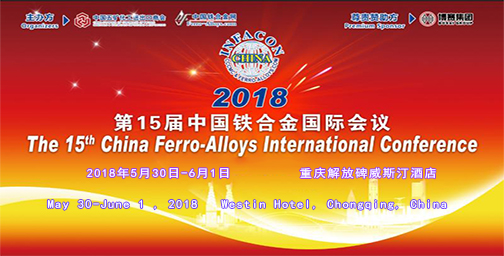[ferro-alloys.com]Workers at a rural South Korean factory are busy extracting some of the world's most coveted metals, used in the batteries that power electric cars.
But they're not digging in the ground or refining ore. Instead, they are sorting through a pile of lithium-ion batteries from old mobile phones and laptops.
As China’s aggressive hunt for overseas cobalt and lithium for electric vehicles pushes up prices and causes a global shortage of the key metals, South Korea is increasingly turning to such "urban mining" to recover cobalt, lithium and other scarce metals from electronic waste.
In 2016, the most recent year from which data is available, 19.6 trillion won ($18.38 billion) worth of metals were extracted from recycled materials, meeting roughly 22 percent of the country's total metal demand, according to a report by the Korea Institute of Industrial Technology.
SungEel HiTech is South Korea's largest battery recycler. A decade ago, the company was at a crossroads as plasma TV panels, from which it extracted gold and silver, began to phase out.
Now it is part of a supply chain for some of the world's major battery makers, including Samsung SDI and LG Chem.
Yi Kang-myung, SungEel HiTech's president, said the shortage of mined metals had led his company to boost capacity by threefold this year. It plans to list in 2020.
"We are receiving phone calls from many who are showing interest," Yi said in an interview at the plant.
"Major automobile companies are interested in our products,: he said, without naming the automakers. He added that battery companies and POSCO, a South Korean steelmaker, are interested in getting into the recycling business themselves.
The scarcity is unlikely to abate anytime soon, as China, the world's biggest user of metals, snaps up mineral resources in countries like the Democratic Republic of Congo and Chile.
Jumping demand
SungEel HiTech, based in the southwestern city of Gunsan, can process about 8,000 tonnes per year of spent lithium-ion batteries and metal scraps.
From that, it can produce about 830 tonnes of lithium phosphate, 1,000 tonnes of cobalt metal equivalent and 600 tonnes of nickel.
POSCO processes lithium phosphate from SungEel to produce lithium carbonate for rechargeable battery makers LG and Samsung, according to SungEel and POSCO.
The battery recycler plans to increase its processing capacity to 24,000 tonnes by 2019 and expand further in 2021, including growing its overseas operations, Yi said.
The company, however, is smaller than foreign competitors such as China's Jiangxi Ganfeng Lithium and GEM Co, and Belgium's Umicore SA.
In 2017, South Korea imported 3.5 million tonnes of nickel, up 2 percent from 2016. Cobalt imports rose 3.4 percent to 13,972 tonnes from a year ago.
Cobalt prices jumped to average $87,615 a tonne in March, about a four-fold increase from January 2016.
That has led to more long-term supply contracts and investments in developing mines, as well as recycling efforts. Samsung SDI may start its own recycling business, a company spokesman said.
Park Jai-koo, an urban mining expert at Hanyang University in Seoul, said electronic waste recycling can help mitigate high prices and limit reliance on outside sources for rare metals.
"South Korea needs to secure resources but mostly all of them are imported," Park said. "Urban mining is more likely to become a way to go."
Difference maker
About 150 small-and-medium sized companies do urban mining, according to the Korea Urban Mining Association.
At SungEel HiTech, the process is not complex or highly automated. After workers pull batteries from recycled devices, the units are drained of power and then ground into a powder from which individual metals can be separated.
Most of the products that are recycled – 60 to 70 percent – come from the United States and Europe, with the remainder from South Korea.
The recycling companies mainly focus on extracting precious metals like gold and silver. But four, including SungEel HiTech, can directly recover cobalt or produce powders from which rare metals can be extracted.
South Korea's environment ministry changed regulations in January to promote recycling by charging higher prices for waste disposal.
Yum Un-joo, chairman of the Korea Urban Mining Association, said recycled resources, if developed correctly, could be a difference maker for the industry and for his country.
"For South Korea, we don't have an option but if we have recycled resources, that could be our strength," Yum said.

- [Editor:王可]



 Save
Save Print
Print Daily News
Daily News Research
Research Magazine
Magazine Company Database
Company Database Customized Database
Customized Database Conferences
Conferences Advertisement
Advertisement Trade
Trade










Tell Us What You Think